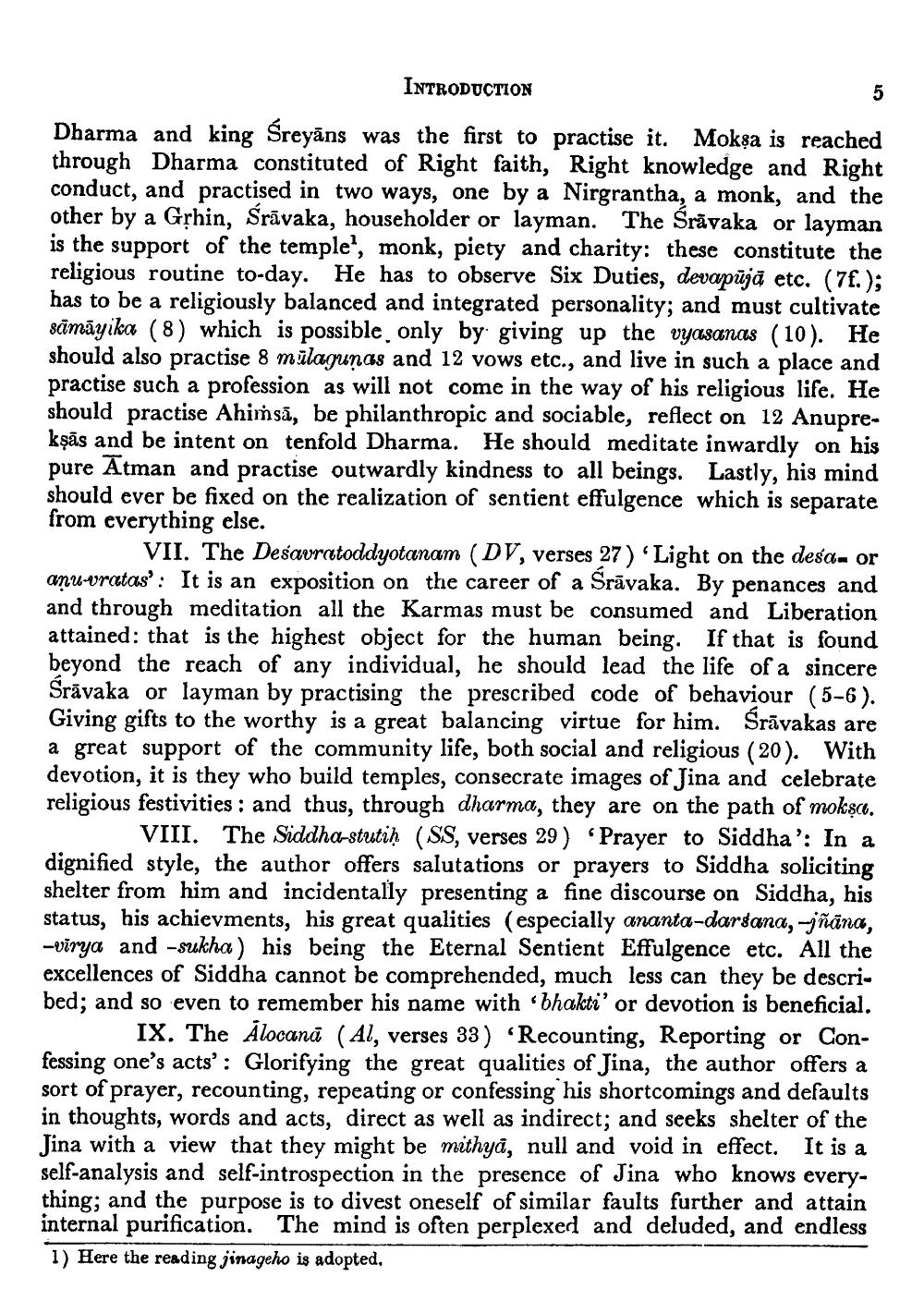________________
INTRODUCTION
Dharma and king Śreyāns was the first to practise it. Moksa is reached through Dharma constituted of Right faith, Right knowledge and Right conduct, and practised in two ways, one by a Nirgrantha, a monk, and the other by a Gșhin, Śrāvaka, householder or layman. The Śrāvaka or layman is the support of the temple', monk, piety and charity: these constitute the religious routine to-day. He has to observe Six Duties, devapūjā etc. (7f.); has to be a religiously balanced and integrated personality; and must cultivate sāmāyika (8) which is possible only by giving up the vyasanas (10). He should also practise 8 mülagunas and 12 vows etc., and live in such a place and practise such a profession as will not come in the way of his religious life. He should practise Ahimsā, be philanthropic and sociable, reflect on 12 Anuprekşās and be intent on tenfold Dharma. He should meditate inwardly on his pure Atman and practise outwardly kindness to all beings. Lastly, his mind should ever be fixed on the realization of sentient effulgence which is separate from everything else.
VII. The Desavratoddyotanam (DV, verses 27) 'Light on the desa. or aņuvratas': It is an exposition on the career of a Śrāvaka. By penances and and through meditation all the Karmas must be consumed and Liberation attained: that is the highest object for the human being. If that is found beyond the reach of any individual, he should lead the life of a sincere Srāvaka or layman by practising the prescribed code of behaviour (5-6). Giving gifts to the worthy is a great balancing virtue for him. Śrāvakas are a great support of the community life, both social and religious (20). With devotion, it is they who build temples, consecrate images of Jina and celebrate religious festivities : and thus, through dharma, they are on the path of moksa.
VIII. The Siddha-stutiḥ (SS, verses 29) “Prayer to Siddha': In a dignified style, the author offers salutations or prayers to Siddha soliciting shelter from him and incidentally presenting a fine discourse on Siddha, his status, his achievments, his great qualities (especially ananta-darsana, -jñāna, -virya and -sukha) his being the Eternal Sentient Effulgence etc. All the excellences of Siddha cannot be comprehended, much less can they be described; and so even to remember his name with bhakti' or devotion is beneficial.
IX. The Alocană (Al, verses 33) Recounting, Reporting or confessing one's acts': Glorifying the great qualities of Jina, the author offers a sort of prayer, recounting, repeating or confessing his shortcomings and defaults in thoughts, words and acts, direct as well as indirect; and seeks shelter of the Jina with a view that they might be mithyā, null and void in effect. It is a self-analysis and self-introspection in the presence of Jina who knows everything; and the purpose is to divest oneself of similar faults further and attain internal purification. The mind is often perplexed and deluded, and endless 1) Here the reading jinageho is adopted,




